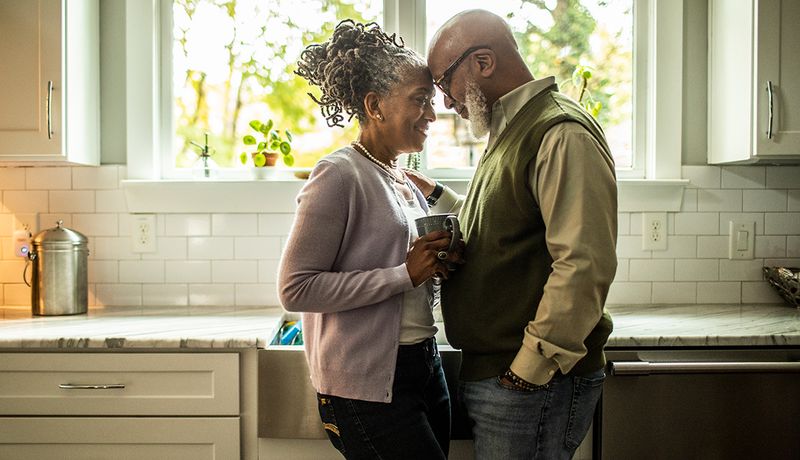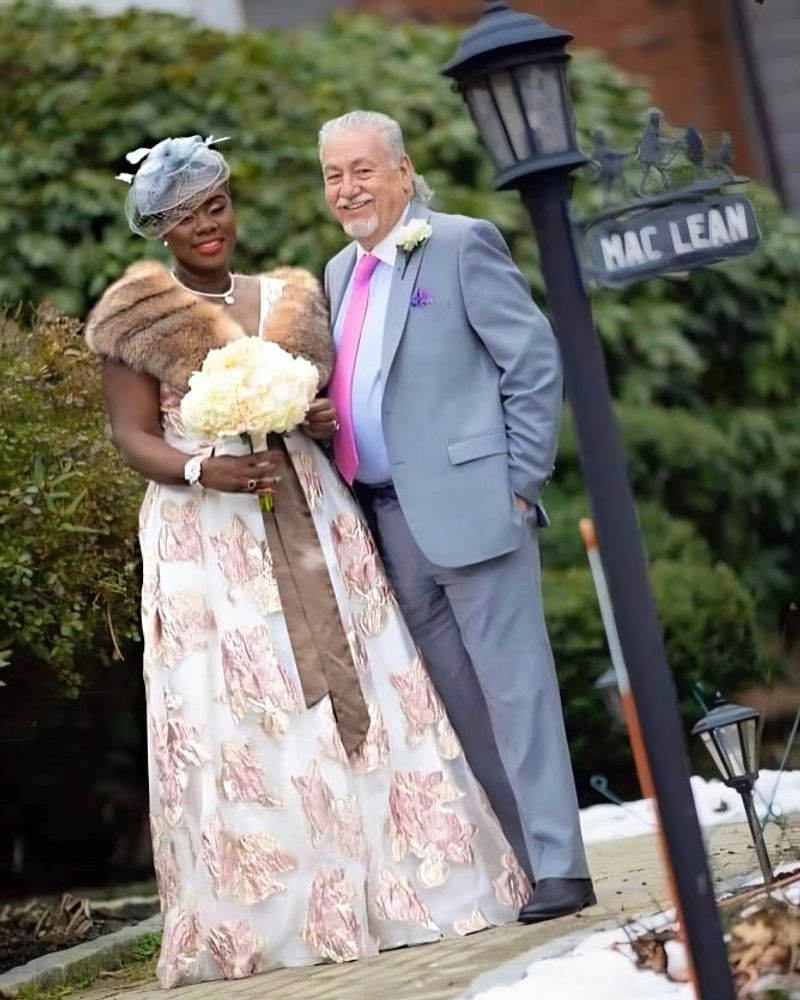19 Hard Truths About Love And Marriage Boomers Learned The Hard Way
Marriages among the boomer generation often emphasized endurance over emotional intimacy, teaching many hard lessons along the way.
These relationships were built on resilience, sometimes at the cost of personal growth and emotional connection. The truths shared here reflect wisdom gained through years of experiences—often learned after facing challenges and growing pains.
Each truth embodies a nugget of reality that many boomers discovered far too late.
1. Staying together doesn’t always mean growing together

Staying in a marriage for decades doesn’t ensure that both partners will grow together. It’s common for couples to find themselves on parallel paths rather than intertwined ones. Over time, shared dreams might fade, replaced by individual goals that don’t align.
Endurance can sometimes mask stagnation. While the marriage remains intact, emotional and personal growth may stall. Partners may end up living separate lives under the same roof, leading to a quiet discontent.
To prevent this, it’s essential to nurture the relationship actively. Explore new interests together and keep communication lines open to foster mutual growth. Remember, a shared life is about evolving together, not just coexisting.
2. Love without respect turns bitter

Love can fizzle when respect is absent, turning the relationship sour. It’s not enough for partners to love each other; they must also genuinely respect one another.
Without respect, love loses its foundation and becomes a source of bitterness. Disrespect can manifest in subtle ways, such as dismissive comments or ignoring each other’s opinions.
Building respect involves recognizing your partner’s individuality and valuing their contributions. Encourage each other’s strengths and celebrate differences. Love flourishes when nurtured by mutual respect and understanding.
3. Avoiding conflict creates bigger problems

Conflict avoidance might seem like a peaceful approach, but it often leads to larger issues. Suppressing disagreements doesn’t mean they disappear; instead, they simmer beneath the surface, waiting to erupt unpredictably.
When conflicts are avoided, real issues remain unaddressed, causing misunderstandings and emotional distance. The lack of resolution can breed resentment, making future disagreements even more challenging to resolve.
Addressing conflicts openly and respectfully can strengthen a relationship. By tackling issues head-on, couples can find solutions and grow closer. Embracing conflict as part of a healthy relationship can prevent minor issues from becoming insurmountable obstacles.
4. Your partner can’t meet needs you don’t voice

It’s a common misconception that partners should instinctively know each other’s needs. Unspoken desires often go unmet, leading to frustration and disappointment. Expecting a partner to read minds is unrealistic and unfair.
Clear communication is vital for a fulfilling relationship. Sharing your needs openly invites your partner to understand and respond to them. It’s a mutual responsibility to express desires and listen actively.
By voicing needs candidly, couples create an environment of trust and openness. This practice encourages empathy and cooperation, strengthening the bond between partners. Remember, clarity is key to mutual fulfillment.
5. Forgiveness without change becomes resentment

Forgiveness is essential in relationships, but without change, it can become a source of resentment. Repeatedly forgiving without seeing improvement leads to feeling taken for granted and unappreciated.
True forgiveness involves acknowledging mistakes and committing to behavioral changes. When apologies aren’t backed by action, trust erodes, and resentment grows, weakening the emotional connection.
Couples should strive for meaningful change after conflicts. This effort demonstrates genuine remorse and respect for each other’s feelings. Forgiveness should be a step towards healing, not an endless cycle of unaltered behaviors.
6. Romance fades if you stop choosing it

Romance isn’t a constant; it requires conscious effort to keep it alive. Over time, the initial spark may dim if not nurtured, leading to a routine devoid of passion and excitement.
Choosing romance means making intentional efforts to keep the connection vibrant. Small gestures, like surprise dates or heartfelt notes, can reignite the passion that often fades with familiarity.
It’s important to prioritize romance amidst life’s demands. By actively choosing to infuse romance into everyday life, couples can maintain a loving and dynamic relationship. Remember, romance is a choice, not a given.
7. Kids don’t fix connection—they distract from it

Children bring joy, but they can also divert attention from marital issues. Some couples mistakenly believe that having kids will strengthen their connection. In reality, parenting demands often pull focus away from the marital bond.
The presence of children can unintentionally mask underlying issues, as couples become absorbed in parenting duties. Without addressing these issues, emotional distance may grow, affecting both partners and children.
Maintaining a strong marital connection requires intentional time and effort. Couples should prioritize their relationship, ensuring they remain connected beyond their roles as parents. This balance fosters a healthy family dynamic.
8. You can be lonely in a marriage that looks fine

Appearances can be deceiving; a seemingly perfect marriage may hide loneliness. It’s possible to be surrounded by partnership and still feel isolated, as emotional connections weaken over time.
Loneliness in marriage often stems from a lack of communication or shared experiences. Partners may drift apart, leading to feelings of solitude even when together.
To combat this, couples should prioritize emotional intimacy. Engaging in meaningful conversations and shared activities can bridge the gap, transforming isolation into connection. Recognizing and addressing loneliness is crucial for a fulfilling relationship.
9. Silence isn’t peace—it’s emotional distance

Silence in a relationship doesn’t always equal harmony; it can signify emotional distance. When couples stop communicating, they lose the opportunity to understand and connect with each other.
A silent relationship may seem peaceful, but it often masks unresolved issues and unmet needs. Without open dialogue, misunderstandings and resentment can fester, weakening the relationship.
Restoring communication is essential to bridge the emotional gap. Couples should strive for open and honest discussions, fostering a sense of understanding and closeness. Remember, true peace comes from connection, not quiet.
10. Being “the provider” isn’t the same as being present

Providing for a family extends beyond financial support; emotional presence is equally important. Being physically present but emotionally absent can leave partners feeling unsupported and disconnected.
It’s easy to equate providing with love, but true presence involves engaging emotionally and mentally with your partner. Quality time and attentive listening are vital for nurturing a strong connection.
Balancing responsibilities with genuine presence strengthens relationships. Partners should strive to be present in each other’s lives, offering support that goes beyond material contributions. This balance fosters a deeper, more fulfilling connection.
11. Sacrificing yourself doesn’t build love—it builds burnout

Self-sacrifice is often seen as a noble act in relationships, but excessive selflessness can lead to burnout. Consistently putting your partner’s needs above your own may result in feeling drained and unappreciated.
When self-sacrifice becomes a habit, it can erode personal identity and well-being. Partners may feel undervalued, as their needs are continually set aside, leading to emotional exhaustion.
Healthy relationships require balance, where both partners feel valued and supported. Prioritizing self-care and communicating needs can prevent burnout, allowing love to flourish without losing oneself in the process.
12. Trust takes years to build—and seconds to lose

Trust is the foundation of any strong relationship, painstakingly built over years through consistent actions and honesty. However, a single misstep can quickly erode this trust, leaving a void that’s challenging to repair.
Betrayals, whether big or small, can have a lasting impact, shaking the stability of the relationship. Rebuilding trust requires time, patience, and sincere efforts from both partners to restore the bond.
To maintain trust, couples should prioritize transparency and integrity in their interactions. Open communication and honoring commitments are crucial in safeguarding the trust that underpins their relationship.
13. Apologies without action are empty

An apology can be a powerful tool for reconciliation, but without corresponding actions, it loses its value. Words alone are insufficient to mend hurt feelings; they must be accompanied by genuine efforts to make amends.
Empty apologies can lead to frustration and resentment, as they fail to address the root of the problem. Without change, the same issues may resurface, causing further harm to the relationship.
Couples must go beyond verbal apologies, demonstrating their commitment to change through actions. This proactive approach fosters healing and strengthens the bond, transforming apologies into meaningful expressions of love and respect.
14. Your partner isn’t responsible for your healing

Healing from past wounds is a personal journey; your partner can support you, but they aren’t responsible for your healing. Relying solely on them to mend your pain can strain the relationship and hinder personal growth.
While a supportive partner provides comfort, healing requires introspection and self-awareness. It’s important to take ownership of your emotional well-being and seek strategies that promote healing independently.
Partners can encourage each other’s healing journeys by offering empathy and understanding. By fostering an environment of mutual support, couples can grow individually while strengthening their relationship.
15. Love doesn’t erase personality differences—it magnifies them

Love is often romanticized as a force that smooths over differences, but in reality, it can magnify them. Personality differences become more pronounced over time, presenting both challenges and opportunities for growth.
Instead of expecting love to eliminate differences, couples should embrace them. Understanding and appreciating each other’s unique traits can enrich the relationship, fostering a dynamic and diverse partnership.
By celebrating differences, partners can learn from each other and grow together. Love thrives in an environment where individuality is respected and cherished, creating a harmonious balance of contrasts.
16. Emotional intelligence matters more than good intentions

Emotional intelligence, the ability to understand and manage emotions, is crucial in relationships. Good intentions alone aren’t enough to navigate the complexities of marital interactions; emotional intelligence provides the insight needed to connect deeply.
A partner with high emotional intelligence can empathize with their partner’s feelings, creating a supportive and understanding environment. This skill enables better conflict resolution and strengthens the emotional bond.
Cultivating emotional intelligence involves self-awareness and empathy. Couples should prioritize developing these skills to enhance communication and foster a resilient, loving relationship built on emotional understanding.
17. Physical touch shouldn’t disappear after 40

Physical touch is a vital component of intimacy, yet it often diminishes with age. After 40, life’s demands may take precedence, causing couples to neglect this essential form of connection.
The absence of physical touch can lead to feelings of isolation and distance. Simple gestures, like holding hands or embracing, convey love and reassurance, reinforcing the emotional bond.
To maintain intimacy, couples should prioritize physical affection, regardless of age. By keeping touch alive, partners can nurture a sense of closeness and warmth, ensuring that love continues to thrive in all stages of life.
18. You can outgrow someone and still love them

Over time, personal growth and life changes can lead to partners outgrowing each other. This doesn’t mean love has vanished; it’s possible to cherish someone while recognizing diverging paths.
Outgrowing a partner involves acknowledging changes in priorities and desires. It requires honest reflection and communication to understand whether the relationship meets current needs and aspirations.
Respectful discussions about evolving life paths can lead to mutual understanding and acceptance. Couples may choose to part ways or redefine their relationship, embracing a new dynamic while honoring the love that remains.
19. It’s never too late to start doing things differently

Change is possible at any stage of life. Whether revitalizing a stagnant marriage or exploring new interests, it’s never too late to embrace new beginnings.
Older couples may feel set in their ways, but adopting a fresh perspective can rejuvenate the relationship. Trying new activities or revisiting forgotten passions can reignite connection and excitement.
Embracing change involves openness and willingness to adapt. By taking steps toward growth and renewal, couples can enhance their relationship and create a vibrant, fulfilling life together. Remember, age is not a barrier to transformation and happiness.






